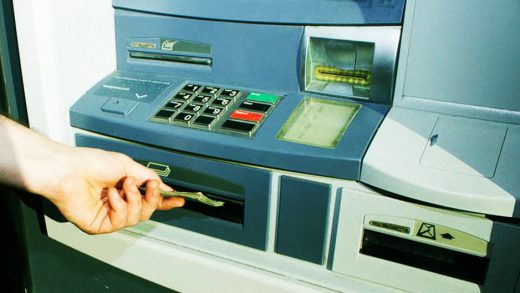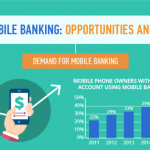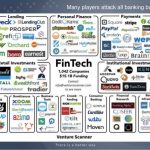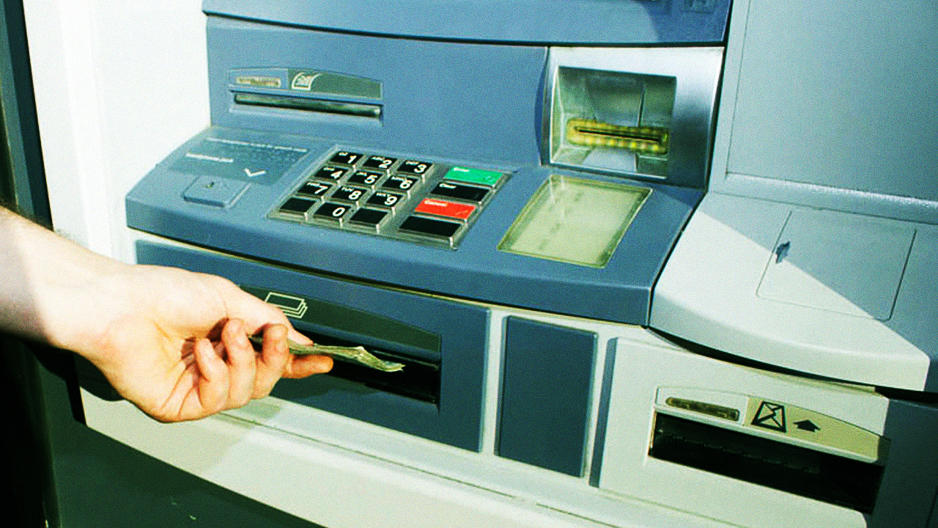Can Hackathons Give Big Banks The Fintech Edge?
Banks and other financial institutions are taking on some surprising partners in an effort to keep pace with innovation.
Accelerators, hackathons, venture capital and private equity firms, and even fintech conferences such as Money20/20 and Fintech Ideas Festival are all becoming channels to find, influence, and guide development in the fintech community as well as in traditional banking.
For the uninitiated, fintech is defined by the Information Technology and Innovation Foundation (ITIF) as when established and upstart financial service providers use IT to develop new services that promise to improve productivity in the financial services industry while providing greater value at lower prices for consumers and businesses. ITIF found that $22.3 billion was invested in fintech startups worldwide in 2015, up 75% from the year before.
“There isn’t another option in 2016 to consider,” says Daniel Martin, business leader of API and developers, digital products, and labs at MasterCard. “The world is moving to a fintech-driven model, and you are either participating, hopefully as a leader, or you will be left behind.”
Dominic Venturo, executive vice president and chief innovation officer at U.S. Bank, says it is “very helpful” for the innovation team at U.S. Bank to engage with the fintech startup community. “There is a lot of benefit to diversity of thought and approach,” he says. “It causes us to think differently.”
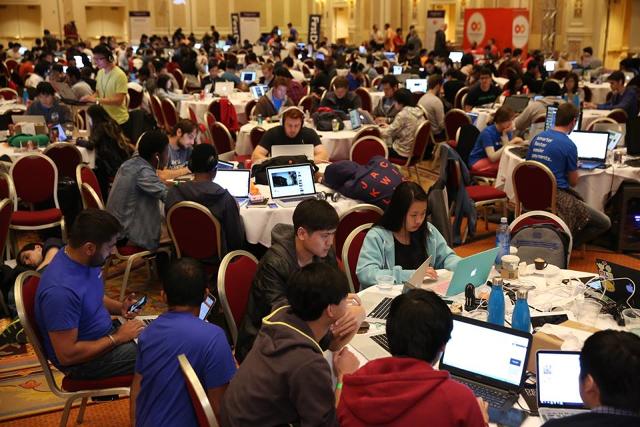
Customers Get Better Service
The banking industry has changed more in the last two to three years than it has in the last 30 years, said Andy Cecere, president and CEO for U.S. Bancorp, the holding company for U.S. Bank, during a September 15 investor call. Cerere cited changing customer expectations and the desire to do more digitally as the drivers of these changes. “The way individuals interact with banks is changing rapidly,” he said.
Many of these changes are being driven by the rise of fintech, says Dan Rosenbaum, head of corporate development, strategy, and innovation at Bank of the West. Fintech can offer enhanced experiences to customers with more functionality on mobile devices and different ways to engage them, he says. For instance, financial engagement apps can help customers visualize their savings account as an actual goal, such as saving money to buy a house or take a vacation, or enable consumers to analyze their budget by looking at their transaction history.
The ability to work with fintech allows banks to have more awareness of the trends and ideas being tested, Rosenbaum says. However, he adds, “We have our own innovations internally, so we’re not just sitting back and letting fintech tell us what to do.”
And So Do Banks And Startups
U.S. Bank estimates it has met with more than 300 companies in the last two years through its relationships with Plug and Play, INV Fintech Accelerator, and others. Four times a year, Plug and Play sifts through more than 800 applications from fintech startups and invites 25 to 30 of them to participate in a 12-week accelerator program that connects the startups to decision makers at financial institutions, including U.S. Bank, Bank of the West, and Deloitte.
This relationship benefits both the startup and the bank, says Scott Robinson, cofounder and vice president of Plug and Play Fintech. While the bank gets to be involved in the early stages of the product’s development, the startup gets early buy-in from the bank, and its developers are able to engage decision makers and get more information about the bank’s product needs, interests, and requirements, he says.
Connecting with startups early in the development stage is especially important, says Rosenbaum, because fintech is not a regulated industry like banks. “We want to make sure the ideas they are developing are compliant and useful to us,” Rosenbaum says. “They might have a great idea, but they might not understand how the regulators will look at that idea. We want to help influence and guide them to the extent that they are open to it.”
Venturo echoes the importance of banks being involved in early-stage development. “We’ve come across companies with interesting ideas and concepts, but when we get into how the product is built or works, or the underlying technology used, there might have been decisions made that make it difficult for us to do business with them,” he says. “Data security is often not as robust in the early stage development, and that can be hard to fix,” Venturo says.
After the initial 12-week program, banks have the opportunity to invest monetary resources into the startups, allowing them to monitor the startup’s work more closely. However, the startup remains independent from the bank and maintains ownership of its product. At any time the startup can take that product to another company or industry, Venturo says.
He admits that not every idea that U.S. Bank invests in is successful. “They might have an interesting idea but it doesn’t materialize,” Venturo says. “We might decide in the real world that it doesn’t work like we thought it would.”
Hackathons That Work
U.S. Bank and MasterCard sponsored a “Think Big, Hack Small” hackathon in September that focused on creating innovative solutions for small businesses. Both companies gave teams access to some of their application program interfaces (APIs) to develop new products. Exposing that technology to a broad audience has a lot of value for MasterCard, says Martin, who points out that MasterCard is a technology-driven company. “From day one, we’ve provided a network that connects things,” he says.
Participating in hackathons allows MasterCard and others to determine whether developers are able to use their technology to create products. “You can develop technology in a vacuum all day long,” Martin says, “but one of the best ways to know if it works is to be side by side with a developer.” MasterCard and U.S. Bank are opening up their technology to developers in the hopes that they will be able to use it to make a successful product, Martin says.

One potential product to come out of the September hackathon was an app that solves a real-world problem: splitting the check at a restaurant. Using the APIs from MasterCard and U.S. Bank, a team created a video game called Undutchly. Dining companions play together on a smartphone and the losing player pays the bill. The app also allows restaurant owners to customize the game to engage customers with their brand.
“The developers understood that the solution needed to work for both the consumer and the merchant, and they used both MasterCard and U.S. Bank APIs in their solution set,” says Douglas Nielson, senior vice president of innovation research and development at U.S. Bank. The team won $15,000 and admission into Plug and Play’s accelerator where they will have the opportunity to continue to work with MasterCard and U.S. Bank.
At the Money20/20 Hackathon in October, MasterCard will give developers access to their vending API in the hopes of finding new ways to use a vending machine, Martin says. It could be used to create a new loyalty program, and instead of printing prize codes under the cap of a bottle of soda, the vending machine could spit out a prize. Or maybe a team could disrupt the self-service car-rental model and develop a vending machine that gives out car rental keys. “The valuable thing is for us to get our technology in front of developers at the point of development where they can change the product,” Martin says.
Accelerating The Search For Talent
A byproduct of partnering with accelerators and the fintech community, says Rosenbaum, is that developers are becoming more comfortable working with banks. There are many talented people in the fintech community who don’t want a traditional job, says Venturo. There are also plenty of people who know how much work a startup is and how uncertain it can be, and who are looking to be more career-focused on a certain area of expertise.
While neither Venturo nor Rosebaum would disclose how many people they have hired from the fintech community, Deloitte Canada recently turned to hackathons to find new talent for its technology consulting practice. They extended 50 offers to developers that company leaders met in September at Hack the North, says Joshua Kho, tech consultant for Deloitte Canada. That is about half the number of positions the technology consulting practice is looking to fill during its current recruitment cycle, he says.
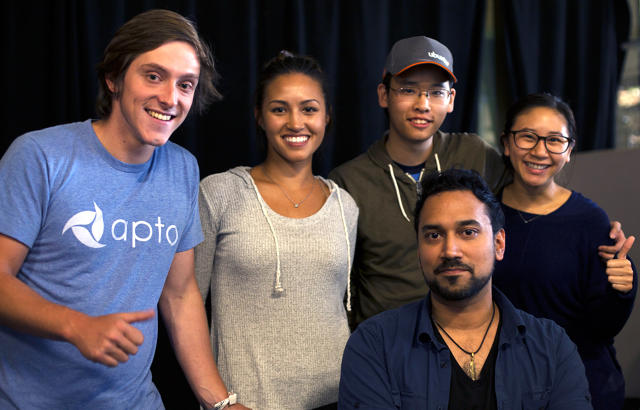
Hackathons provide better insight into candidates than the traditional recruitment model, Kho says, because you see how someone performs under a compressed and difficult timeline. “We can view their actions, how they think, how they react, how they build, how they problem-solve, all in the artificially created stress brought on by their limited timeline.”
For Bank of the West, hackathons are less about finding talent and more about finding ideas, Rosenbaum says. “Our relationship with accelerators, venture capital firms, and hackathons are all about what a bank, like us, does to make sure we’re picking up new trends and ideas, and feeding them back into our organization.”
Fast Company , Read Full Story
(35)

